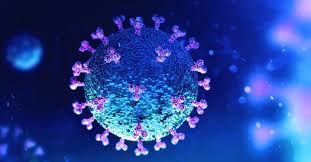Last I called an old friend, Stephen Morse, a professor of epidemiology at the Columbia University Mailman School of Public Health. Morse was the subject of a book I wrote nearly 30 years ago about emerging viruses, in which he basically predicted our current catastrophe. Today he feels a bit put off by the frenzy.
最后,我打电话给我的老朋友,史蒂芬·莫尔斯,他是哥伦比亚大学梅尔曼公共卫生学院的流行病学教授。将近30年前,我写了一本有关新兴病毒的书,莫尔斯是书中的主题人物,他在书中基本上预言了我们眼前面临的浩劫。如今他对这股研究热潮有些反感。
"This is not the way I would like to see science being done... it's happening so quickly," Morse told me. He strained to look for a bright side. "A lot of knowledge is becoming available," he ventured. And if some of that supposed knowledge ends up being wrong, he said, seeming to strain even harder, couldn't that be construed as a good thing? "Science is a self-corrective process. Maybe even the effort to correct the errors will lead to improved knowledge." Maybe. But I didn't feel better when we hung up.
“这不是我想看到的科学研究的方式...发生得太快了。”莫尔斯告诉我。他勉强找出好的一面。“这使得有大量的知识可用。”他试着说。而如果某些所谓的知识最终发现是错的,他似乎更勉强地说,这难道不是件好事吗?“科学是自我修正的过程,甚至或许这个修正错误的努力,将会造就出更完善的知识。”或许吧。但当我们挂了电话,我并没有感觉到好一些。

Still troubling me were a couple of things. First, the politicization of the process could upend everything. Even if science closes in on a more accurate view of COVID-19 and how to treat and eventually prevent it, that might not be how the story is spun. Enough conflicting interests and alliances exist for the truth to be turned on its head without too much effort, making it seem as if scientists who amended their views based on new evidence were pretty much wrong from the start.
有几件事仍然困扰着我。首先,科学过程政治化可能会搞砸一切。即使科学揭露了COVID-19更清晰的样貌,以及如何治疗,最终是预防它的方式,也不见得会被如实呈现。互相冲突的不同利益和阵营,足以使事实轻易地被扭曲掩盖,让根据新证据修正观点的科学家看起来很像是一开始就错了。
来源:可可英语 http://www.kekenet.com/Article/202012/622208.shtml











